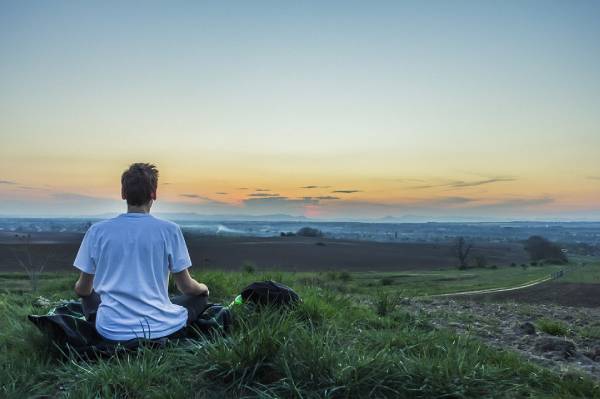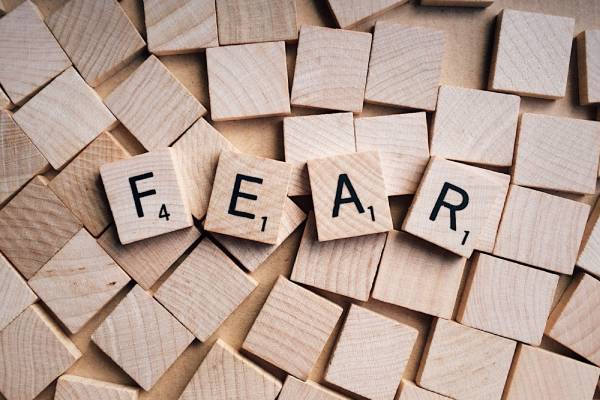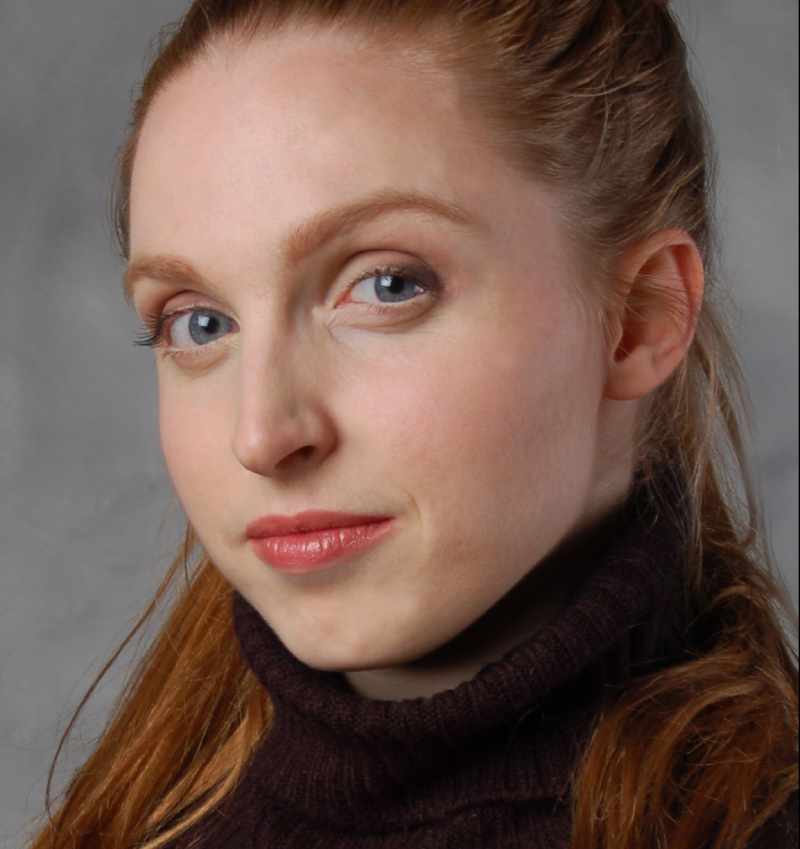What exactly is performance anxiety and how can singers combat it?

Sarah is a professional singer in Montreal with a Bachelor of Music in Classical Voice from McGill. During her time at McGill Sarah was also trained by the prolific Musical Theatre Coach, Elizabeth Koch, who has coached famous Broadway stars such as Aaron Tveit, Kerry Butler and Jeremy Jordan. She has dealt with performance anxiety herself and now offers invaluable advice on how to overcome stage-fright when signing.
You’re standing in your bedroom, barefoot, comfortable, relaxed and belting out your audition piece. It’s ready. You’re ready. The technique is there, you feel confident about the lyrics and you’ve established a character that will tell the story of the song.
You pick out your audition clothes, something that makes you feel beautiful and amazing, you choose your shoes and you’re out the door on your way.
You’re sitting in a designated waiting area outside the closed door. Maybe your leg is bouncing up and down with nerves, maybe your palms are sweating or maybe you just feel plain sick. The moment is coming when you will walk through those doors into the unknown.
When your name is called, your stomach drops or your head spins and suddenly you feel like fleeing. Why did you ever decide to do this? The feeling of dread sets in more deeply as you walk into the room of awaiting faces and you put on a smile and try to mask your fear with confidence and positivity.
You introduce yourself, trying to keep your voice steady and you find your place on the floor or on the stage in order to begin your song.
You’ve practiced, you’ve trained, perhaps you have spent money on a coach or an accompanist, you have put your whole heart into this and yet when the time comes, a series of physical reactions occur, hindering your ability to perform at your full potential. Your breathing may start to come out shallowly, your legs and arms may start to shake, you may feel your jaw lock up and a tension spread over your lips, throat, neck and shoulders.
The phenomenon I have described, which will be familiar to many singers, is performance anxiety (better known as “stage fright”). Performance anxiety is a unique and powerful beast. Few are immune, and even those at the Broadway and “pop star” levels report experiencing this form of anxiety before every performance.
Performance anxiety is not a sign of weakness
It is important to note that. It is in fact a very normal fight or flight reaction to doing something that is genuinely terrifying: performing in front of an audience and asking them to love you. Our blood rushes to our arms, legs, hands and feet in order to either fight or flee, thus creating a shaking and pulsing feeling in our limbs. Our blood pressure spikes creating dizziness and/or nausea. Our muscles tense up, preparing us for the fight of our lives.
However, just because this is a pervasive (and natural) struggle amongst performers, there exist many strategies and habits that allow us to work through the anxiety and hopefully diminish the physical symptoms in our bodies that seem to betray us.
Deep Breathing and Mindfulness Meditation
This may seem obvious, but deep breathing and mindfulness practices can be essential to diminishing the physical effect of performance anxiety. Deep breathing keeps our heartbeat steady, allowing blood to flow normally as well as being beneficial for those who experience a loss of breath when suffering from performance anxiety. Mindfulness allows us to stay present in the moment of our music and to stay connected to and in communication with our physical bodies. It is a mind calming practice that will allow you to realize that there is nothing truly dangerous beyond those audition room doors.

Full-Body Relaxation
Something I try to do with all my students, is a practice of muscular relaxation prior to singing. This is most effectively done in conjunction with meditation. On top of promoting relaxation, this practice allows you to be hyper-connected to your physical body. From the top of your head to the bottom of your feet, breathe in and relax a specific muscle group on each exhale (eyebrows, lips, larynxes). Once you get to your legs and feet, start to feel a grounding take place (e.g. roots have emerged from your feet and are tethering your body to the ground). Stay in this relaxed state for a few more minutes, checking in with your whole body, noticing if certain muscles have retained tension, breathing into those spots and releasing it.
For a guided body relaxation, please check out audio clip at the top of this post:
Pre-Performance Ritual
Once you have some experienced relaxing muscle groups and meditating, apply these practices pre-performance. In my personal experience, I can stave off anxiety until about 30 seconds before I perform so I begin the meditative and physical relaxation practices about 10 minutes before I know I need to sing (this means arriving early to auditions!).
Another pre-performance ritual (which unfortunately may only be possible in certain situations) is getting to know the space before you perform. For concerts, take advantage of a sound check and walk around the stage, figure out where you’ll stand and look out into the empty crowd, imagining the audience. Find your grounding and breathe deeply. Make sure you know what the situation is regarding microphones, accompaniment, entrances and exits to the stage, and imagine all of it but with an audience. Visualize the most confident and relaxed version of yourself going through the motions and performing. This sort of imagined run-through will reduce the possibility of surprises and will allow you to feel more comfortable in the space. If there is time for a true run-through, do so start to finish, including entering and exiting the stage.
Cognitive Behavioural Therapy
CBT or Cognitive Behaviour Therapy is a multi-faceted practice used by psychologists on patients suffering from anxiety and depression. One tenet of CBT is that we can work our way backwards out of an anxiety spiral by continuing to ask the question: “What’s the worst that can happen?” At every level of fear, ask yourself this question:
“What if I mess up my lyrics?”
“What if I don’t hit the high note?”
“What if everyone else is better than me?”
Well… what if? Will it be the end of your career? Unlikely. Will it mean you shouldn’t keep singing? Never. Will you be fatally wounded? Well I certainly hope not.
The reality is that even though singing feels like a bear attack at times, it really isn’t. The stakes are typically pretty low and even in an audition setting, the worst that can happen is not booking the part: an undeniably disappointing result, but definitely not worth experiencing a full physical lock down of your body. Seek help with a licensed psychologist in order to gain the full benefits of CBT.
Don’t Fear Fear Itself
One of the most important things I ever learned from my voice teacher at McGill University was to not allow the fear of your performance anxiety to take over. He told me that performance anxiety can be an excellent asset for a performer, allowing them to be hyper-focused, energetic and dynamic. He also told me that most performers are so terrified of this internal anxiousness and the possible repercussions, that they create another level of anxiety: the fear of fear itself. He taught me that I should embrace that initial feeling of performance anxiety and allow it to drive my performance, to ride the wave of feelings rather than try to avoid them. This has proven to be invaluable advice.
Practice
Once again, a seemingly obvious suggestion, however in this case I mean more specifically practice in relation to desensitization. While you should absolutely be prepared in terms of having music and lyrics memorized, the actual act of performing also needs to be faced again and again in a form of exposure therapy, the hope being that with time, it will become second nature.
Physical Distraction
One surefire way to get out of your head is to get into your body. I enjoy jumping jacks personally, but you may find your own physical exercise (cardio or muscular) that will not only help you focus away from the anxiety but will also use those fight or flight muscles that have been activated. A bit of exercise will allow them to calm down, having served their purpose. Please note that this should be done fairly in advance of any performance, as it is not ideal to sing immediately after cardio!

Medical Options
For some, performance anxiety is a debilitating mental and physical reaction and in those cases I have suggested that students seek medical advice about the use of beta-blockers. Beta-blockers will help with reactions such as racing heart and physical shaking. The idea is that it blocks adrenaline receptors meaning you will not go into fight or flight mode. However, I would like to reiterate that this decision should be taken very carefully and only under the advisement of a medical professional.
Here’s the takeaway: Performance anxiety is not the enemy and by gaining mind-body awareness through meditative and physical practices, we can work with it rather than against it and come out a better performer.
Sarah is a professional singer in Montreal with a Bachelor of Music in Classical Voice from McGill. During her time at McGill Sarah was also trained by the prolific Musical Theatre Coach, Elizabeth Koch, who has coached famous Broadway stars such as Aaron Tveit, Kerry Butler and Jeremy Jordan.




